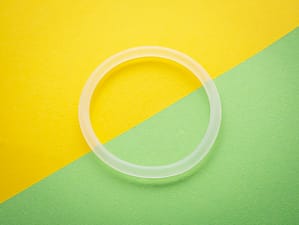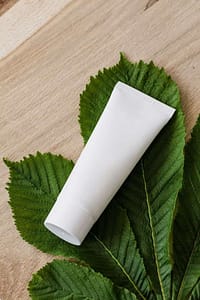Understanding Vaginal Dryness
Vaginal dryness is a common issue that women of all ages can experience, although it’s particularly prevalent in those going through menopause. This condition can significantly impact a woman’s quality of life and overall well-being. Let’s explore this condition’s symptoms, causes, and effects and options for vaginal dryness treatment.
Symptoms and Causes
Symptoms of vaginal dryness can vary among women and might include vaginal dryness, itching, and irritation. Pain during sitting, exercising, peeing, and sexual intercourse can also be a sign of vaginal dryness. These symptoms occur when the tissues in the vagina are dry, thin, and not well-moisturized due to decreased estrogen levels (Cleveland Clinic). It’s essential to seek medical attention if women experience these symptoms to receive appropriate vaginal dryness treatment.
While vaginal dryness is commonly associated with menopause, it’s not exclusive to this life stage. Even women in their 20s and 30s can experience vaginal dryness. During menopause, vaginal dryness affects nearly 1 in 3 women and becomes even more common afterward, leading to thinner and less elastic vaginal tissue known as vaginal atrophy.
Impact on Quality of Life
Vaginal dryness can significantly affect a woman’s quality of life. The physical discomfort can lead to mental stress and anxiety. In some cases, pain during sexual intercourse can lead to a decrease in sexual desire, which can strain relationships and lead to emotional distress.
Moreover, the constant discomfort can take a toll on a woman’s everyday activities, making routine tasks, like sitting and exercising, uncomfortable. It’s crucial to address these symptoms and seek vaginal dryness treatment to improve one’s quality of life.
Remember, you’re not alone in this. Many women go through similar experiences, especially during menopause. It’s important not to let vaginal dryness affect your self-esteem or happiness. There are many solutions, including natural remedies, to help alleviate the discomfort and help you return to enjoying life.
Treating Vaginal Dryness
There are several treatment options available to help alleviate the symptoms of vaginal dryness. These include medications, hormonal treatments, natural remedies, and home treatments.
Medications and Hormonal Treatment
Medications for vaginal dryness typically work by either replacing or acting like estrogen in the body. These are available with a prescription only (Cleveland Clinic). Hormonal treatments such as estrogen creams, tablets, and vaginal rings inserted into the vagina may be options for vaginal dryness, particularly when accompanied by urinary symptoms or menopausal symptoms like hot flashes. These treatments deliver less estrogen than typical hormone therapies and have fewer risks.
Topical estrogen therapy is the most common treatment for vaginal dryness caused by low estrogen levels. However, it does not put as much estrogen in the bloodstream as hormone therapy pills.
Over-the-counter moisturizers and lubricants are recommended for vaginal dryness. Moisturizers help add moisture in and around the vagina, with internal moisturizers for vaginal tissue and external moisturizers for the vulva. Lubricants decrease discomfort during intercourse and should be used by sexually active women along with a vaginal moisturizer.
Natural Remedies and Vaginal Treatment at Home
Natural oils such as grape seed, olive, vegetable, sunflower, or coconut oils may be safe home remedies for vaginal dryness when used as an external lubricant before intercourse. However, oil-based lubricants can damage condoms, so if you are of childbearing age, use only water-based lubricants.
Regular sexual activity, whether alone or with a partner, can help improve overall vaginal health by increasing blood flow, vaginal secretions, and relieving vaginal dryness (WebMD).
Pelvic floor exercises, like Kegels, can strengthen weak vaginal muscles, relax tight muscles, and increase blood flow to the vagina, helping alleviate vaginal dryness symptoms (WebMD).
For more information on natural remedies and home treatments for vaginal dryness, check out our article on natural remedies for vaginal dryness.
Whether you opt for medications, hormonal treatments, or natural remedies, it’s essential to consult with a healthcare provider to identify the most suitable vaginal dryness treatment for your individual needs.
Lifestyle Changes for Relief
In addition to medical interventions, specific lifestyle changes can also contribute to the relief of vaginal dryness. These include dietary adjustments and regular pelvic floor exercises.
Diet and Nutrition
Making alterations to your diet can be one of the most effective natural remedies for vaginal dryness. Incorporating healthy fatty foods into your meal plan can help alleviate symptoms associated with this condition. Such foods include free-range, hormone-free eggs and butter, avocados, olive oil, salmon, and oysters (Dr. Anna Cabeca).
Moreover, staying hydrated is equally essential. Dehydration can worsen the symptoms of vaginal dryness, so make sure to drink plenty of water throughout the day.
Pelvic Floor Exercises
Pelvic floor exercises, like Kegels, can help improve vaginal dryness. These exercises can alleviate vaginal dryness by strengthening weak muscles, relaxing tight ones, and increasing blood flow.
Regular sexual activity, either alone or with a partner, can also contribute to overall vaginal health. Increased blood flow and vaginal secretions can help relieve vaginal dryness. Prolonging foreplay before intercourse can also increase vaginal moisture (WebMD).
Moreover, natural oils such as grape seed, olive, vegetable, sunflower, or coconut oils may be safe home remedies for vaginal dryness. These oils should be used as external lubricants before intercourse. However, any lubricants used should be water-based to avoid damaging condoms (Cleveland Clinic).
In conclusion, lifestyle changes can play a significant role in vaginal dryness treatment. Maintaining a healthy diet, doing pelvic floor exercises, and staying hydrated can help alleviate vaginal dryness.For more information about natural remedies for vaginal dryness, visit our dedicated section on this topic.
Seeking Medical Help
Diagnosis and Treatment Options
Healthcare providers diagnose vaginal dryness through medical history and a physical exam. They may also test vaginal discharge to rule out other causes or infections (Cleveland Clinic). This helps them determine the best course of action for relief.
Treatments for vaginal dryness vary and can depend on the cause, with many safe and effective options available. Women with hormonal vaginal dryness can use lubricants, moisturizers, estrogen creams, or hormone replacement therapy for relief (Gynecology and Obstetrics Medical Group).
Specifically, for vaginal dryness caused by low estrogen levels, topical estrogen therapy is the most common treatment. This method does not put as much estrogen in the bloodstream as hormone therapy taken in pills, making it a safer choice for some women.
| Treatment Options | Description |
|---|---|
| Lubricants | Temporary relief during sexual activity |
| Vaginal moisturizers | Longer-lasting relief |
| Prescription estrogen creams | Applied directly to the vagina |
| Hormone replacement therapy | For systemic hormonal imbalances |
While medical treatment can offer relief, don’t forget about the potential benefits of natural remedies for vaginal dryness.
Importance of Consulting a Healthcare Provider
It may be uncomfortable, but it’s essential to consult a healthcare provider about vaginal dryness. This condition can significantly impact one’s quality of life and may indicate underlying health conditions, like hormonal imbalances or infections.
Your healthcare provider can help identify potential vaginal dryness causes and propose effective treatments for your case.. They can also provide information on how to manage vaginal dryness symptoms and how it relates to menopause and vaginal dryness.
Remember, you’re not alone in this. Many women experience vaginal dryness, particularly during menopause, and help is available. You’re taking an essential step toward improving your comfort and overall health by seeking medical advice.
This website may contain affiliate links, and we may earn a commission for any purchases you make on affiliate websites using these links. Our affiliates include Clickbank. Rest assured, these affiliate links come at no additional cost to you.
No content on this site, regardless of the posting date, should be used as a substitute for direct medical advice from your doctor or another qualified healthcare professional.



